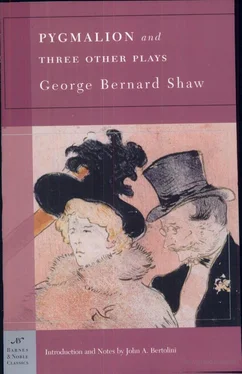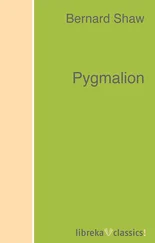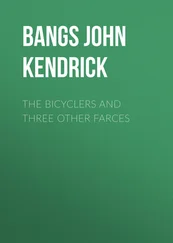HEARTBREAK HOUSE AND HORSEBACK HALL {61} 61 1 (p. 477) Heartbreak House and Horseback Hall: With these two categories — metaphors, really Shaw indicates a division of the upper classes. Heartbreak House, as he goes on to explain, symbolizes the socially liberal, artistic, and intellectual but apolitical and self-absorbed group; Horseback Hall is the pro forma conservative, anti-intellectual, anti-artistic, but pro-leisure-sports and self-absorbed group. Shaw points out that neither group provided a good pool for political leaders.
WHERE HEARTBREAK HOUSE STANDS
HEARTBREAK HOUSE IS not merely the name of the play which follows this preface. It is cultured, leisured Europe before the war. When the play was begun not a shot had been fired; and only the professional diplomatists and the very few amateurs whose hobby is foreign policy even knew that the guns were loaded. A Russian playwright, Tchekov, had produced four fascinating dramatic studies of Heartbreak House, of which three, The Cherry Orchard, Uncle Vanya, and The Seagull, had been performed in England. Tolstoy, in his Fruits of Enlightenment, had shown us through it in his most ferociously contemptuous manner. Tolstoy did not waste any sympathy on it: it was to him the house in which Europe was stifling its soul; and he knew that our utter enervation and futi lization in that overheated drawing-room atmosphere was delivering the world over to the control of ignorant and soulless cunning and energy, with the frightful consequences which have now overtaken it. Tolstoy was no pessimist: he was not disposed to leave the house standing if he could bring it down about the ears of its pretty and amiable voluptuaries; and he wielded the pickaxe with a will. He treated the case of the inmates as one of opium poisoning, to be dealt with by seizing the patients roughly and exercising them violently until they were broad awake. Tchekov, more of a fatalist, had no faith in these charming people extricating themselves. They would, he thought, be sold up and sent adrift by the bailiffs; and he therefore had no scruple in exploiting and even flattering their charm.
Tchekov’s plays, being less lucrative than swings and roundabouts, got no further in England, where theatres are only ordinary commercial affairs, than a couple of performances by the Stage Society. We stared and said, “How Russian!” They did not strike me in that way. Just as Ibsen’s intensely Norwegian plays exactly fitted every middle and professional class suburb in Europe, these intensely Russian plays fitted all the country houses in Europe in which the pleasures of music, art, literature, and the theatre had supplanted hunting, shooting, fishing, flirting, eating, and drinking. The same nice people, the same utter futility. The nice people could read; some of them could write; and they were the sole repositories of culture who had social opportunities of contact with our politicians, administrators, and newspaper proprietors, or any chance of sharing or influencing their activities. But they shrank from that contact. They hated politics. They did not wish to realize Utopia for the common people: they wished to realize their favorite fictions and poems in their own lives; and, when they could, they lived without scruple on incomes which they did nothing to earn. The women in their girlhood made themselves look like variety theatre stars, and settled down later into the types of beauty imagined by the previous generation of painters. They took the only part of our society in which there was leisure for high culture, and made it an economic, political, and, as far as practicable, a moral vacuum; and as Nature, abhorring the vacuum, immediately filled it up with sex and with all sorts of refined pleasures, it was a very delightful place at its best for moments of relaxation. In other moments it was disastrous. For prime ministers and their like, it was a veritable Capua.
But where were our front benchers to nest if not here? The alternative to Heartbreak House was Horseback Hall, consisting of a prison for horses with an annex for the ladies and gentlemen who rode them, hunted them, talked about them, bought them and sold them, and gave nine-tenths of their lives to them, dividing the other tenth between charity, churchgoing (as a substitute for religion), and conservative electioneering (as a substitute for politics). It is true that the two establishments got mixed at the edges. Exiles from the library, the music room, and the picture gallery would be found languishing among the stables, miserably discontented; and hardy horsewomen who slept at the first chord of Schumann were born, horribly misplaced, into the garden of Klingsor; {62} 62 2 (p. 479) the garden of Klingsor: Shaw uses this image as a symbol of sensuous self-indulgence. In German composer Richard Wagner’s 1882 opera Parsifal, the eponymous hero is tempted to such self-indulgence by the flower maidens in the magical garden of the evil magician Klingsor.
but sometimes one came upon horsebreakers and heartbreakers who could make the best of both worlds. As a rule, however, the two were apart and knew little of one another; so the prime minister folk had to choose between barbarism and Capua. And of the two atmospheres it is hard to say which was the more fatal to statesmanship.
Heartbreak House was quite familiar with revolutionary ideas on paper. It aimed at being advanced and freethinking, and hardly ever went to church or kept the Sabbath except by a little extra fun at week-ends. When you spent a Friday to Tuesday in it you found on the shelf in your bedroom not only the books of poets and novelists, but of revolutionary biologists and even economists. Without at least a few plays by myself and Mr Granville Barker, and a few stories by Mr H. G. Wells, Mr Arnold Bennett, and Mr John Galsworthy, the house would have been out of the movement. You would find Blake among the poets, and beside him Bergson, Butler, Scott Haldane, [238] John Scott Haldane (1860-1936), Scottish writer and physiologist.
the poems of Meredith and Thomas Hardy, and, generally speaking, all the literary implements for forming the mind of the perfect modern Socialist and Creative Evolutionist. [239] One who believes evolution has direction and purpose; a follower of French philosopher Henri Bergson (1859-1941) or Shaw.
It was a curious experience to spend Sunday in dipping into these books, and on Monday morning to read in the daily paper that the country had just been brought to the verge of anarchy because a new Home Secretary or chief of police without an idea in his head that his great-grandmother might not have had to apologize for, had refused to “recognize” some powerful Trade Union, just as a gondola might refuse to recognize a 20,000-ton liner.
In short, power and culture were in separate compartments. The barbarians were not only literally in the saddle, but on the front bench in the House of Commons, with nobody to correct their incredible ignorance of modern thought and political science but upstarts from the counting-house, who had spent their lives furnishing their pockets instead of their minds. Both, however, were practised in dealing with money and with men, as far as acquiring the one and exploiting the other went; and although this is as undesirable an expertness as that of the medieval robber baron, it qualifies men to keep an estate or a business going in its old routine without necessarily understanding it, just as Bond Street tradesmen and domestic servants keep fashionable society going without any instruction in sociology.
Читать дальше












